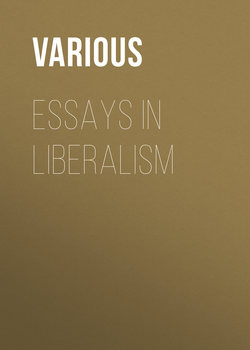Читать книгу Essays in Liberalism - Various - Страница 13
THE BALANCE OF POWER
By Professor A.F. Pollard
Mischievous Hallucination
ОглавлениеIn either case, it is a mischievous hallucination; for the simple Balance of Power between two great combinations is not only no guarantee of peace, but the great begetter of fear, of the race for armaments, and of war. Consider for a moment. If you want a balance, you want to have it perfect. What is a perfect balance between two opposing weights or forces? It is one which the addition of a feather-weight to either scale will at once and completely upset. Now what will that equipoise produce? The ease with which the balance may be destroyed will produce either on one side the temptation to upset it, and on the other fear lest it be upset, or fear on both sides at once. What indeed was it but this even balance and consequent fear which produced the race for armaments? And what does the race for armaments result in but in war? If we want war, we need only aim at a Balance of Power, and it will do the rest. So far from being a guarantee of peace, the Balance of Power is a sovereign specific for precipitating war.
Of course, there are arguments for a Balance of Power. Plenty of them, alas! though they are not often avowed. It produces other things than war. For one thing, it makes fortunes for munition firms. For another, it provides careers for those who have a taste for fighting or for military pomp. Thirdly, in order to maintain armies and navies and armaments, it keeps up taxation and diverts money from social, educational, and other reforms which some people want to postpone. Fourthly, it gratifies those who believe that force is the ultimate sanction of order, and, by necessitating the maintenance of large forces for defensive purposes, incidentally provides means for dealing with domestic discontent. Fifthly, it panders to those who talk of prestige and think that prestige depends upon the size of a nation’s armaments. For the sake of these things many would be willing to take the risk of war which the Balance of Power involves. But most of those who use the phrase are unconscious of these motives, and use it as they use many another phrase, simply because they know not what it means. For, assuredly, no sane person who had examined the Balance of Power, as it existed before the war, could ever advocate it as a means of peace.
Indeed, whenever there has been the prospect of a practical Balance of Power, its votaries have shown by their action that they knew their creed was nonsense. The late war, for instance, might have been ended in 1916 on the basis of a Balance of Power. There were a few who believed that that was the best solution; but they were not our latter-day believers in the Balance of Power. Their cry was all for a fight to a finish and a total destruction of the Balance of Power by an overwhelming victory for the Allies, and their one regret is that a final blow by Marshal Foch did not destroy the last vestige of a German army. What is the point of expressing belief in the Balance of Power when you indignantly repudiate your own doctrine on every occasion on which you might be able to give it effect? And what is the point of the present advocacy of the Balance of Power by those who think themselves neither visionaries nor blind? Do they wish to restore the military strength of Germany and of Russia and to see an Alliance between them confronting a Franco-British union, compelled thereby to be militarist too? Is it really that they wish to be militarists and that the League of Nations, with its promise of peace, retrenchment, and reform, is to them a greater evil than the Balance of Power?
